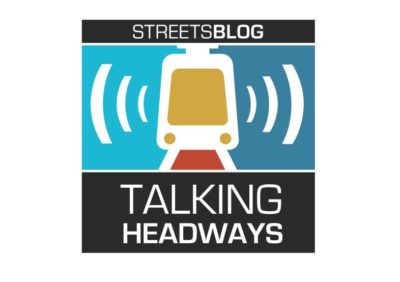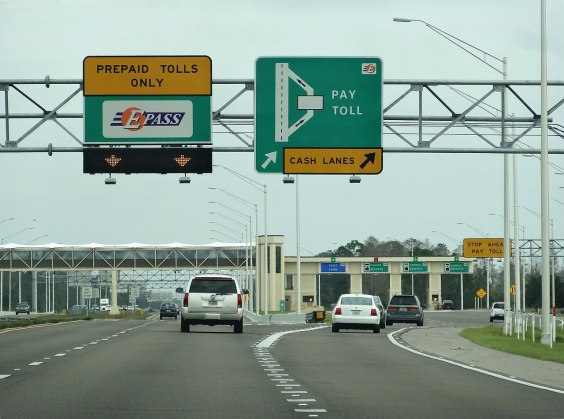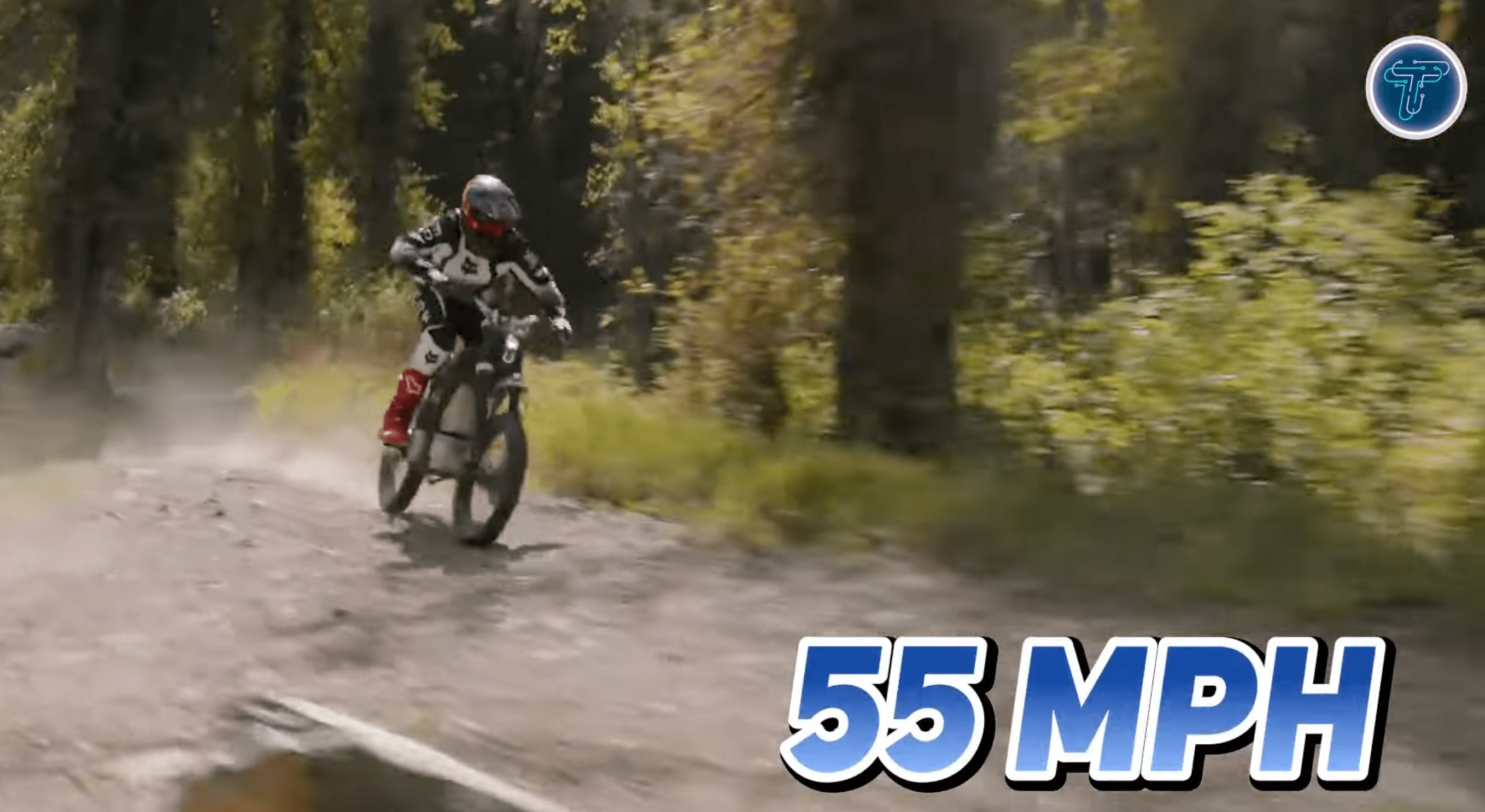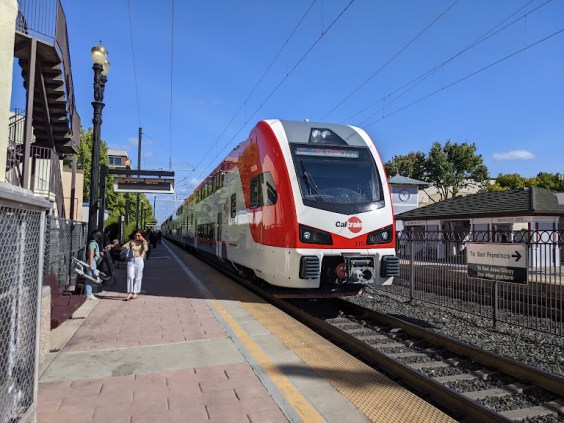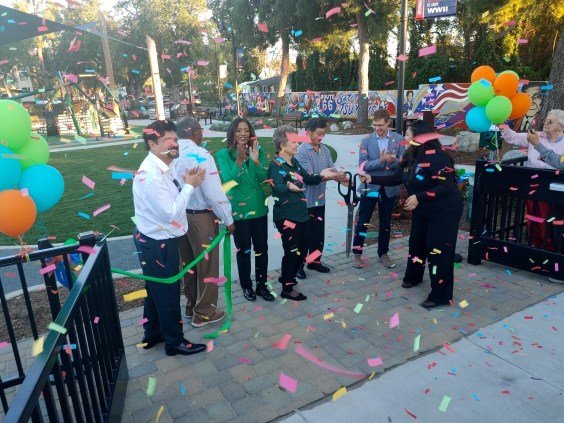This week, we’re talking with Katy Knight, executive director of the Siegel Family Endowment. We chat about the endowment’s recent infrastructure report, Rebuilding America: The Road Ahead, which discusses a future where digital, physical, and social infrastructure connect. Knight talks with us about the importance of governance, the two-way conversations we should be having with elected officials, distributing investments intelligently, and the importance of greater thinking about social infrastructure.
For those of you who prefer to read, there is an edited transcript under the audio player. A full, unedited transcript is here.
Jeff Wood: We had a good conversation about governance and how people can get to that sort of expertise and the ability to make those measurements, but also listen to the people. I’m wondering how much good governance impacts how you can actually get to those results that we want?
Katy Knight (14m 7s): Governance is a form of infrastructure in and of itself. Its social infrastructure, the way that we are able to kind of collectively exist as a society, is a form of social infrastructure that matters. If we had both more transparent governance so that people, your regular average citizen, had access to information about the decisions that are being made when they’re in progress, as opposed to, you know, five years after the fact, when someone submits a FOIL request to get that information, that would be really helpful. But also, you know, if our elected officials had access to expertise, both technical expertise and the expertise that comes from the lived experiences of people in communities that are impacted, we would all be better served by that because right now we have a pretty odd definition of what makes a good elected official.
If we did a needs assessment of what kind of expertise you need to make good governance decisions, we would come to a very different conclusion. I think about what sort of people we wanted to elect to government. And that would be my dream in the long term is to see that change. In the short term, I think we can do a better job of getting technical expertise and community expertise to people who are in positions of power or decision-making or authority.
Jeff Wood: What keeps those skilled people out of those positions of power in the first place?
Katy Knight: You know, government doesn’t pay well, it’s not super accessible. Taking a role as an elected official or striving for a role as an elected official requires you to give up lots of your privacy and to sort of submit yourself to the court of public opinion in interesting ways. And that’s not everyone’s cup of tea. I think it’s just, I, I’m not saying that public officials shouldn’t be public because they should. I think if the payoff felt different, if we weren’t constantly caught in these cycles of kind of partisan back and forth, or if the work didn't feel so thankless, more smart, interesting people would be attracted to government. I think even if we don’t get a host of new people running for office, if it were easier to offer your services as a technical expert to your local government, that would go a long way in getting more people involved.
Even for me, as someone who’s really, really, really interested in local politics, it can be hard to figure out how you can talk to a local elected official in an efficient way. There are channels for you to file a complaint, channels for you to request help, but there are not usually channels for you to offer help to your government. And so how do we make that happen?
Jeff Wood: The two-way street part is really interesting. I hadn’t really thought about that. Usually. It’s just me emailing my supervisor here in San Francisco and being like, "I don’t like this thing" or "Hey, BART, I got to where I wanted to go or thank you for doing this thing." But the reward center in our lizard brains are a little bit different, right? We get angry and that makes us want to talk. And this is a silent majority thing. Almost. It feels like.
Katy Knight: Yeah, for sure. And you know, voting is really important — we should all vote — but so much has to happen between election cycles. So much goes on in terms of decisions that are made. Like once you have elected someone, or even if they’re not the person that you wanted elected, like you still have a voice and you’re still a constituent and that doesn’t have to just be a factor for you when you’re dissatisfied. Granted, if you go to my Twitter and see what I have tweeted at the New York City Transit Authority, you will find that most often it is, "Where is my train" and "Why is this the train station an ice skating rink?" Right. But I promise you that besides that I have also tried to help in productive ways and be like a thoughtful citizen and provide, you know, I think I have very limited expertise, but provide expertise where it can,
Jeff Wood: But you are an expert in writing, for example, because you’ve been doing it for a while. So there’s expertise in that. But I think we dismiss sometimes people’s lived experiences for quote unquote technical expertise. I’m also glad that you had a section in the paper about thinking about distributing investments. There was a really great change in the way Houston thought about doling out flood investments. And it came from people voting to change the County board, but initially money was going to the most expensive investments, which usually meant people’s houses that had insurance. And they were well off, but it’s changed to actually thinking about community resilience. I’m curious, what’s a good starting point for thinking about that type of equitable spending?
Katy Knight: If we look again at the ROI for the investments that we make, it should be about how people are benefiting. And we can even weight certain outcomes in our calculation and value them differently, value them higher. And so, you know, for example, if you want to serve the most underserved populations, you should sort of weight that outcome in what you’re designing so that it is serving people who need it most. One of the things that I was reading recently about how well Vermont has done in the face of the COVID pandemic made the point that perhaps much of the success is attributed to the fact that Vermont was kind of designing for edge cases.
So they sought to address the homeless shelter population and get people into socially distant motel rooms, as opposed to large open shelters. They were designing for the fringes. And if you talk to disability advocates or people who work with underserved populations, they’ll tell you that when we designed for the middle of the road, when we designed for the average so-called average user, we’re always going to leave out the populations that often most need services. And we’re always going to then be working to fix things that we’ve built, as opposed to designing for people who need accommodations instead of serving the middle of the pack. That's how we could avoid having to go back and rework things that we’ve done in order to serve people who are not the sort of standard that you have in mind.
